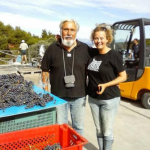November 6, 2019 – Cohres junior analyst Kristina Boras talks linking tourism and technology in Croatia.
Croatia is a small country that has shined on the world stage for many reasons, one reason largely being tourism, but another being the innovative technological advancements. By linking its established tourism sector with the advancing technological sector, Croatia can make sustainable improvements and capture new opportunities.
There is an ongoing discussion about whether or not Croatia’s tourism sector is sustainable and what improvements can be made to maintain the success and growth of the sector. One of the main issues regarding Croatia’s successful tourism is the seasonality that limits it to approximately a mere 80 days during the summer months with most of the overnight stays occurring on the coast. The Croatia 365 Conference aimed at making year-round tourism a reality in Croatia was held for the third year in a row on September 24, 2019, in Zagreb. Although, this year there was a greater focus on the topic of creativity and new technology, which are ever-changing and are proving to be crucial components to the sustainability of the tourism sector.
It is imperative to stay current on quickly evolving technological trends that have the potential to transform the tourism sector and help Croatia align with consumer demands. Emerging technology has already begun heavily transforming and stimulating the tourism sector more than ever before. Croatia’s technology sector has received recognition from many global investors and companies. Infobip and Sentinel Marine Solutions are two examples of successful Croatian technology companies that have the potential to apply solutions in many aspects to the travel and tourism sector. Infobip has become one of Croatia’s tech superstars and a global leader in omnichannel engagement with their messaging platform that is used by reputable companies such as Whatsapp, Uber, and Oracle etc. Sentinel Marine solutions allows boat owners and fleet managers connect to their boats and offers the first-ever context-aware recommendation engine that is able to generate a list of places to visit at sea. These are only current examples but one can imagine the endless amount of opportunities that could arise when connecting to the tourism sector as technological innovation advances in Croatia.
Why is the adoption of technologies crucial for Croatia’s tourism sector?
Technological advancement paired with globalization has provided us with instant access to information at our fingertips, which has influenced tourism as a result. Travellers often publicly share their reviews as ratings online regarding quality of food and service. This is common practice among tourists that helps others find the best places and avoid the worst at a certain destination. Therefore, travellers hold a majority of the buying power in this market as they influence the success of tourism and sustainability.
The introduction of the sharing economy has also allowed for an abundance of competitors in the sector. For example, Airbnb offers tourists a greater variety of unique accommodations as an alternative to booking the generic hotel room. These innovative competitors have sprung up in several areas of tourism and as a result, businesses must differentiate and keep up with emerging technologies in order to maintain their positions in the sector. With 20% of Croatia’s GDP being produced from its tourism sector alone (Statistic from Total Croatia News), adapting to technology to sustain this successful industry is crucial.
Recommendations:
- Mobile Apps – Rather than seeking travel agents, travellers have begun planning their trips through mobile applications that give them instant access to recommendations and allow for hassle-free trip planning. Applications are also used for choosing where to dine, what activities to do, and ordering taxis upon their arrival. This is starkly different from the traditional methods of asking for recommendations at the reception desk or looking through flyers offered in hotel rooms.
- Conversational AI – This refers to AI that works similarly to a chat bot. It allows for someone to message a programmed speech-based assistant, or chat bot, that can respond to them quickly and during 24 hours a day, every day of the week. In regards to tourism, these bots could answer questions or offer recommendations solely based on consumer preferences, resulting in a more personalized and satisfied experience. Bots can be programmed to automate tasks based on consumer behaviour and apply that information to various services offered by a company.
- Virtual Tours – Tourists travel for the experience, and virtual reality can give them next level insight on what to expect on their next or potential trip. Before their trip, to ensure a great experience, travellers search for pictures, reviews, videos and social media posts to get a better idea of what to expect on travels. For example, to avoid disappointment, a tourist will search for reviews for a hotel and find out that the beautiful photos do not quite match reality. Virtual reality, however, boosts transparency, shortens the time customers spend on research, and reduces misinterpretation by giving future tourists a more immersive look at what they can expect.
- Consumer Data – The large amount of data tourists generate on their journeys fuels strategic growth decisions made by companies involved in the sector. The data that is being collected and considered includes customer behaviour, spending habits, preferences, demographics and interests in activities. Information on this behaviour allows for businesses to gain a better insight on what tourists want and what they could do to improve their experience. This could come in the form of recommendations to offer guests, to improve customers and what parts of their offerings could be improved. Marketing strategies could also be tailored to the data collected, and a personalized message can be offered in accordance to what travellers want to experience.
The technology and methodology mentioned has the potential to play a large role in extending Croatia’s seasonality and potentially promoting year-round tourism by expanding to the vineyards, lush forests, mountains and rural areas. Rich data, smart technology and the potential of efficient marketing methods has the ability to reach a wide target audience with a personalized message that targets various segments of Croatian tourism. Aside from coastal tourism, eco-tourism in Croatia has grown and is not restricted to the summer seasons. Eco-tourism can implement technology to offer personalized experiences to travellers who are keen on exploring ”untapped locations” and are searching for “local experiences.” The travel planning site müvTravel released a list of Top 30 Millennial Travel Destinations for 2019 and has found that young people are more interested in “activities that focus on sustainable and personalized local experiences.” Croatia has an abundance of heritage, culture and natural resources that are attractions beyond the summer months; and provide the desired original and local memories that more and more travellers are seeking. Luckily for Croatia, it has beautiful natural landscapes and also an innovative workforce that should be a foundation to become a year round tourist destination.
References
https://www.revfine.com/technology-trends-travel-industry/
https://www.fingent.com/blog/emerging-technology-trends-in-travel-tourism-industry
To read more about business in Croatia, follow TCN’s dedicated page.









